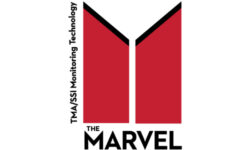What’s the Impact of Rumored Comcast, Alarm.com Purchase of Icontrol?
Leading SHaaS (smart home as a service) provider Icontrol is reportedly being sold to Comcast/Xfinity and erstwhile rival Alarm.com. What does this mean for the security and home automation market?
Rumors have it that Comcast (Xfinity) and Alarm.com will acquire Icontrol, a leading provider of cloud-based security and home automation services.
It looks like Icontrol is ready for its big equity event after practically inventing the modern-day SHaaS (smart home as a service) a dozen years ago. It is rumored that Comcast/Xfinity and Alarm.com (Nasdaq: ALRM) are acquiring portions of Icontrol, including:
- Icontrol’s original Z-Wave- and security-centric “Connect” platform used primarily by ADT (Icontrol’s first significant customer in 2009).
- The ZigBee-based “Converge” platform used by cable companies (acquired from Ucontrol in 2010).
- Piper, the DIY home-automation-in-a-camera solution (acquired from BlackSumac in 2014).
Reports suggest that Comcast will purchase the assets associated with (2) Converge, and Alarm.com will pick up the rest of it.
Back when Icontrol debuted in 2004, the model of integrating professionally monitored security systems with lifestyle-oriented home automation systems via the cloud was novel.
Today, it’s everywhere, deployed by mass-market security service providers like ADT (Pulse); giant cable companies and telcos like Comcast (Xfinity Home) and AT&T (Digital Life); independent security dealers and home-technology integrators; and increasingly a large number of DIY-oriented manufacturers like Swann.
For most of those years, Icontrol competed extensively with Alarm.com, which went public in June 2015 and today boasts a market capitalization of nearly $1 billion.
Stacey Higgibotham seems to have broken the Icontrol news. Assuming the acquisition rumors are true …
Why didn’t Icontrol go public?
Icontrol should have gone public a couple of years ago, or else immediately after Google acquired Nest for $3.2 billion and IoT valuations were completely insane.
But Icontrol missed its big window of opportunity when it was the go-to platform for ADT and the cable companies. Nowadays, Comcast, ADT and other giants are starting to develop their own platforms in-house – a trend that wouldn’t bode well for an IPO.
To mitigate this potential loss of business, Icontrol launched an installer-direct program called Icontrol One in 2015 – a few years too late – to chase the same independent dealers currently served by Alarm.com, Honeywell Total Connect and others. But this type of initiative takes a whole lot of time and money to bear fruit.
You might be tempted to look at the strong performance of ALRM on Nasdaq – shares opened at $16 year ago and trade at $22 today – but Icontrol would look worse on paper than its chief competitor.
Both companies probably have about the same number of subscribers – maybe 2.7 to 3 million-ish – but margins (therefore revenues) would be lower for Icontrol, given 1) the negotiating power of its very large customers and 2) Alarm.com’s historically high dealer pricing vis-Ã -vis competitors.
Also, Alarm.com generates substantial revenue in hardware (cameras, thermostats and other accessories), which Icontrol doesn’t.
At the end of the day, it’s simply a riskier proposition to serve a handful of very large players as in Icontrol’s case (so we’ve seen) versus thousands of independent dealers as in Alarm.com’s case.
Why would Comcast buy Icontrol?
Comcast makes great sense as an acquirer of Icontrol. Comcast is an original investor and long-time customer, so why not bring the platform in-house and exercise more control over it?
Comcast/Xfinity announced last year that it would transition away from Icontrol in favor of its own SHaaS platform with an open the API.
Back then, Dan Herscovici, SVP and general manager of Xfinity Home told CE Pro Comcast was making the move so it could more tightly integrate home automation with its cable TV platform.
Comcast wants to offer the “same consumer experience on all screens,” he said.
The company didn’t want to wait until its platform provider could, for example, incorporate Lutron lighting controls into the TV environment.
But he also told us back then, that the new SHaaS platform was all Comcast, not “built on” Icontrol: “The platform was developed by Comcast through-and-through.”
So, maybe building your own platform isn’t as easy as it looks?
Comcast could have bought a different provider such as Zonoff, but the intellectual property shared by Icontrol and Alarm.com is so potent (Icontrol sued Zonoff in 2014), the safest bet is to stick with Icontrol.
It might even be possible that Icontrol threatened to sue Comcast if they went off on their own, or else impose a hefty licensing fee such that it made more sense for Comcast to simply own the IP.
Who else might have acquired Icontrol?
Again, the whole intellectual property issue makes Icontrol a very attractive acquisition. People who know about these things say the Icontrol and Alarm.com portfolio are rock-solid.
ADT would be a prospective buyer. We surmised last year that ADT had a relationship with Zonoff, but again there’s the sticky IP situation. Now that ADT is married to Protection 1 through an acquisition by Apollo Global Management, it might be super-interesting to add a SHaaS platform like Icontrol to the portfolio.
Google, Amazon or Apple would certainly enjoy Icontrol’s IP, along with its stature in the industry today. All three of those giants have been slow to move on the home-automation front. Acquiring Icontrol would get them into the game today.
A big home-security manufacturer like 2Gig by Nortek (Nasdaq: NTK) could have made a play. 2Gig doesn’t have its own platform currently, while many of its chief competitors do: Honeywell has Total Connect, Interlogix/UTC has UltraSync (acquired in 2014) and Napco has iBridge. Do they infringe on the Icontrol/Alarm.com patents? Who knows?
Vivint, a big ADT competitor, could have bought it. The company has become a giant in the security and home-automation business (solar and wireless, too) and has been pushing to bring everything in-house, including hardware development and SHaaS cloud services. Vivint has been a long-time Alarm.com customer, but now is only licensing some Alarm.com technology as it builds out its own platform.
A retailer like Best Buy would definitely make sense as well. Best Buy is, shall we say, nowhere in the smart-home business. Their big play was in 2014 when some guy in the merchandising department picked a buddy’s start-up to anchor the retailer’s smart-home business (that’s how I read it, at least). That product, Peq, was powered by Icontrol and never went anywhere.
A big consumer-electronics company might have swooped in. Samsung is using SmartThings as its SHaaS engine, but would Icontrol be better (and potentially less risky from a patent perspective)? LG is all over the place with the connected home and might do we
ll to consolidate its platforms under something like Icontrol. It’s got that camera/hub thing that was expected to be powered by Zonoff and professionally monitored via ADT’s new Canopy service. It’s also got Smart Thinq, powered by …?
Alarm.com might have acquired Icontrol in its entirety, but could they afford the $600M – $800M potential price tag? More importantly, antitrust issues would surely arise.
AT&T, Verizon or some other telco might have been interested as well.
Why does Alarm.com want pieces of the Icontrol business?
That’s a good question. I’m not sure what Alarm.com would want with Icontrol’s “Connect” platform, which is very much like Alarm.com’s own platform, revolving around a traditional security system. They don’t want it for the customers – pretty much only ADT – but perhaps there is some interesting IP there.
Other than that, Icontrol has made a little headway internationally and has used its platform with some DIY products including its own Piper. Israel’s largest telecom Bezeq, for example, has deployed a service based on Piper hardware and the Icontrol SHaaS.
Assuming Alarm.com is getting Piper with the deal, there is obvious opportunity there, although I can’t imagine the product has a whole lot of sales yet. Alarm.com has made clear in its financial reporting that it is working on a DIY play.
We have seen nothing so far from Building 36 technologies, an IoT start-up with a Z-Wave gateway that Alarm.com acquired last year. That was supposed to be Alarm.com’s foundation for the DIY market.
Will Alarm.com consolidate the platforms?
Industry insiders tell me that Icontrol does a better job than Alarm.com on alarm-reporting services and video handling. “It’s cleaner,” says one source, who adds that Icontrol does a “better job” with IP-connected devices via its OpenHome platform.
Icontrol currently integrates in the cloud with numerous third-party devices that Alarm.com currently does not support. Granted, Icontrol customers haven’t deployed many of those integrations, but they’re ready for the taking.
Alarm.com doesn’t support a whole lot of third-party IoT devices. My opinion on that matter is that Alarm.com simply wants to sell more of its own hardware (shameful).
It wouldn’t seem to make sense for Alarm.com to support two completely different SHaaS platforms unless they simply want to differentiate lines for different markets such as independent security/home automation dealers, large service providers like ADT, the DIY market or the international market.
What about ADT?
Well, ADT looked like it was going to go with Zonoff or a completely home-grown solution, but maybe they’ll stick with the Icontrol platform under Alarm.com. And maybe then Alarm.com would transition ADT to its own platform.
The fact that Alarm.com recently added a former Protection One executive to their board of directors might give us some clues. Perhaps they plan to secure the ADT business after all.
What does this mean for competition?
Independent alarm and home automation dealers won’t be too happy about this deal.
Icontrol’s push into the indy market would have kept Alarm.com’s prices in check. With its dominant market position over the years, Alarm.com has maintained premium prices vis-a-vis smaller competitors, and the high pricing structure would not have been sustainable in the longer term.
Swallowing the Icontrol dealer business helps prolong Alarm.com’s higher prices. (Pricing here refers to the wholesale cost of interactive home automation services charged to dealers/resellers, typically in the $5 to $20 range, excluding central alarm monitoring service.)
There is no doubt we will see another dominant player emerge for those dealers held hostage to Alarm.com, but it will take years. Tomorrow, I will post the most promising new competitors.
To be notified when that article goes live, E-mail [email protected]
If you enjoyed this article and want to receive more valuable industry content like this, click here to sign up for our FREE digital newsletters!

Security Is Our Business, Too
For professionals who recommend, buy and install all types of electronic security equipment, a free subscription to Commercial Integrator + Security Sales & Integration is like having a consultant on call. You’ll find an ideal balance of technology and business coverage, with installation tips and techniques for products and updates on how to add to your bottom line.
A FREE subscription to the top resource for security and integration industry will prove to be invaluable.














